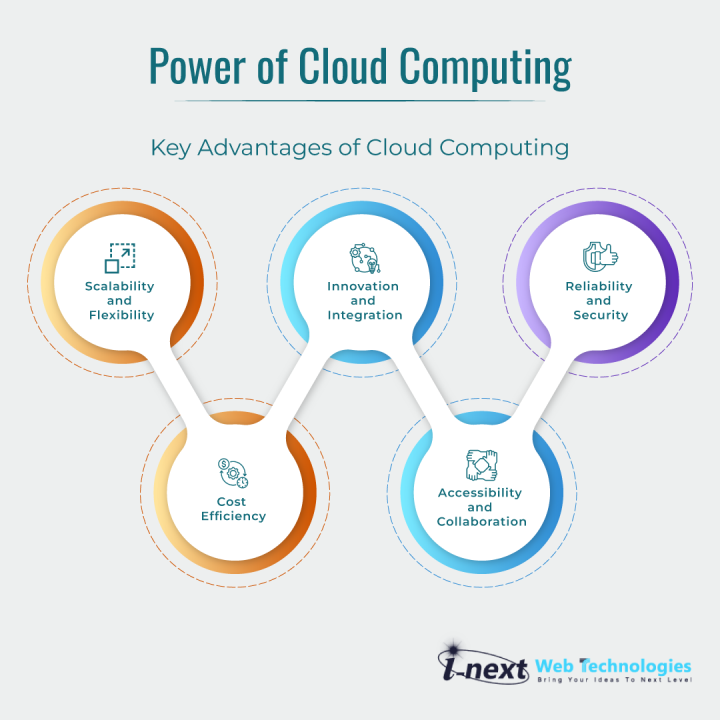
The emergence of cloud computing has brought about a significant change in the way people and businesses store, access, and use data and applications. It provides a flexible and scalable solution that eliminates the need for extensive on-premises infrastructure. This article will delve into the concept and power of cloud computing and its transformative effect on different industries.
Understanding Cloud Computing
Cloud computing is the distribution of computing resources such as servers, storage, databases, software, and networking via the internet. This technology allows users to access these resources from any location and at any time using either a web browser or specialized software. With cloud computing, there is no need to store applications and data on local servers or personal computers.
Key Advantages of Cloud Computing
Scalability and Flexibility
With cloud computing, businesses can adjust their resources according to their needs. They can increase their server capacity during peak periods or change their storage requirements as needed, thanks to the flexibility of cloud services. This eliminates the need for upfront investments in infrastructure and helps businesses respond quickly to changing demands.
Cost Efficiency
By using cloud computing, businesses are able to save on upfront costs and ongoing maintenance expenses by eliminating the need for physical hardware. This is because cloud services allow businesses to pay only for what they use, avoiding overprovisioning and optimizing resource allocation. Furthermore, cloud services often offer pay-as-you-go or subscription-based models which enable predictable budgeting and cost control.
Accessibility and Collaboration
With cloud computing, users can easily access their applications and data from any device that’s connected to the internet. This makes it possible for people to work remotely, collaborate more effectively with their teams, and share files and resources seamlessly. Plus, multiple users can work on the same documents at the same time, which helps to improve productivity and streamline workflows.
Reliability and Security
Cloud service providers make significant investments in infrastructure, security, and disaster recovery measures. This guarantees that data and applications have high availability and reliability, as well as built-in redundancy and backup systems. Additionally, cloud providers use strong security protocols, encryption, and authentication mechanisms to safeguard sensitive information, often exceeding the security measures of local systems.
Innovation and Integration
Cloud computing allows businesses to use state-of-the-art technologies and services that may have been expensive or challenging to implement otherwise. It facilitates effortless integration with a variety of cloud-based tools, APIs, and third-party services, which enables businesses to unlock new capabilities, improve their offerings, and speed up innovation cycles.
The utilization and provision of computing resources have been revolutionized by cloud computing. The benefits of scalability, cost-effectiveness, accessibility, dependability, and security have made cloud computing an essential tool in various sectors. As technology progresses, cloud computing will remain a crucial element in promoting digital transformation, enabling businesses to simplify operations, dynamically expand, and achieve greater efficiency and creativity. To stay competitive in today’s fast-changing digital environment, embracing the potential of the cloud is vital.
